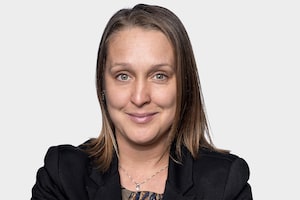Kris Hanke
Canadian parents are struggling to strike a balance between saving for their children's education and their own retirement, according to research released Wednesday.
A poll by Edward Jones Canada found that 15 per cent of parents with children under the age of 18 are favouring their child or children's education over their own savings, putting aside little or nothing for their retirement. On the other end of the scale, 26 per cent of parents polled said they are primarily saving for retirement and only a little for post-secondary school for their offspring.
Michelle Kay-Scott, a senior retirement planning specialist for Edward Jones Canada, said it was worrisome that such a large number of parents were choosing one over the other.
"Some people might see education as more of a priority than retirement, but when you give on one, it will be harder to enjoy that destination later on," she said. "People's goals will have deadlines and they will all be different, but think about what you can do to today to help achieve them."
Even more worrisome than choosing one over another is that 26 per cent of those polled said they are not saving either for retirement or for their children's post-secondary schooling. Only 22 per cent of Canadians are managing to save equally for both goals.
Ms. Kay-Scotts' advice for people is to save at least a little bit for both education and retirement each month. The danger in delaying saving for retirement, she says, is that people will have to save more later in life to catch up.
Malcolm Hamilton, an actuary at Mercer Human Resource Consulting and an expert on saving for retirement, says that over the course of their lifetime, people need to save for three competing demands: retirement, their children's education and debt reduction.
"I don't think people should worry if they are not doing all three at the same time," he said in an interview. "Sometimes when you have three good things it is hard to tell which is the best and which is the worst. The important thing is that you are living frugally and that you are doing one or more of those with the money that you can afford to save."
In his opinion, people who can't afford to squirrel money in all three directions should focus on chipping away at their debt. "If you pay off your debt, your mortgage payments will be gone and you will find it becomes easier to make up for lost time in the other areas," Mr. Hamilton said. "A mortgage is a huge drain on your cash flow."
Saving for retirement, meanwhile, could be put off until later in life, simply because you have the longest time to do it and it is also financially the least advantageous, he said. "You do need to save for retirement, but there is no harm in delaying this until the last half of your working lifetime as long as you are living frugally and getting out of debt."
Financial advisers have traditionally suggested that people shoot for a retirement income of 70 per cent of their salary. More recently, however, people in the industry have been saying that percentage should be closer to 90 per cent.
Edward Jones, for instance, suggests that it's a prudent idea for investors to assume that they'll likely need between 70 and 90 per cent of pre-retirement income to maintain their current standard of living in retirement.
Mr. Hamilton, who acknowledges he always finds himself on the lowest end of these targets, says Canadians could live well on 50 per cent of their pre-retirement income. He argues that once the mortgage is paid off, the kids are out of the house and earning their own money, and people's taxes drop like a rock, most seniors find that living on 50 per cent of their previous income is really not that bad.
"At the end of the day, their standard of living stays the same," he said.
The Edward Jones survey was conducted by Leger Marketing between July 27 and Aug. 13. The results are based on telephone surveys of 2,348 adults and are considered accurate within plus or minus 2 per cent, 19 times out of 20.
Edward Jones provided these tips to help parents find a balance:
Define your financial goals, and create a financial plan based on these - In trying to achieve your goals, ensure that your investments are appropriate for your needs and risk tolerance, and that your portfolio is properly diversified. Education funding may be a shorter-term goal than retirement planning, and assets should be allocated accordingly. Investors should speak to an expert to determine what suits their individual portfolio.
Set-up RESPs for your children - To keep up with the rising costs of tuition, parents can contribute to a Registered Education Savings Plan (RESP) that offers tax benefits and great growth potential with contributions from the Government of Canada.
Save for your retirement in a designated account, such as an RRSP - Just as your money needs to grow to fund your child's education, you have to do the same for your retirement. An RRSP is a great retirement savings vehicle that allows savings to grow while sheltered from taxes.
Roma Luciw is a writer and web editor of the Globeinvestor.com personal finance site. Please send any comments and story ideas to rluciw@globeandmail.ca.
 Roma Luciw
Roma Luciw